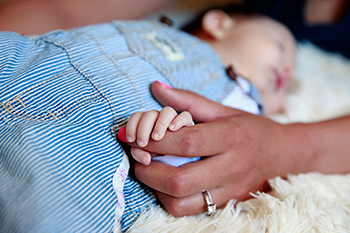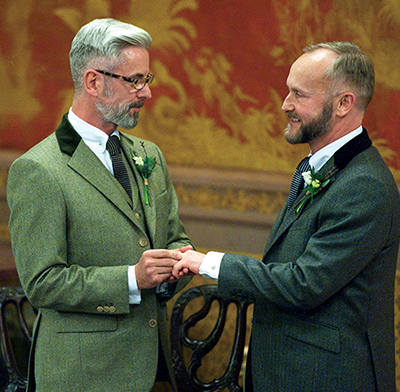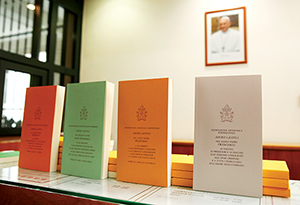By Cindy Wooden
VATICAN CITY (CNS) – Tears and not words. Prayers and not greetings.
During his trip to Poland for World Youth Day, Pope Francis will go to the Auschwitz-Birkenau Nazi death camp. He said he wants to go alone and say nothing.
When Pope Francis speaks, he can delight fans and frustrate critics. He can wax poetic or be bluntly funny about human quirks.
But in the face of great suffering and horror, his first and strongest inclinations are silence, a profoundly bowed head and hands clasped tightly in prayer.
Pope Francis had asked that there be no speeches during his visit to Armenia’s genocide memorial June 25. At times, even the prayer service there with the Armenian Apostolic patriarch seemed too wordy. An aide gently cupped his elbow when it was time to end the silent reflection and begin the service.
The Vatican’s schedule for the pope’s visit to Auschwitz-Birkenau July 29 had him giving a speech at the international monument at Birkenau, just as St. John Paul II and Pope Benedict XVI did.
But on the flight back to Rome from Armenia, Jesuit Father Federico Lombardi, Vatican spokesman, told Pope Francis, “I heard that you want to live that moment more with silence than words.”
The pope responded by reminding reporters that in 2014 when he went to Redipuglia in northern Italy to mark the 100th anniversary of World War I, “I went in silence,” walking alone among the graves. “Then there was the Mass and I preached at Mass, but that was something else.”
Speaking about his planned visit to Auschwitz-Birkenau, “I would like to go to that place of horror without speeches, without crowds – only the few people necessary,” he said. “Alone, enter, pray. And may the Lord give me the grace to cry.”
Father Lombardi confirmed June 30 that the official program had been changed and the pope would not give a speech at the death camp. But it is not that Pope Francis has nothing to say about the horror of the Shoah, the importance of remembering it and the need to continue fighting anti-Semitism.
“The past must be a lesson to us for the present and the future,” he said Jan. 17 during a visit to Rome’s synagogue. “The Shoah teaches us that maximum vigilance is always needed in order to intervene quickly in defense of human dignity and peace.”
In the book “On Heaven and Earth,” written in 2010 with Rabbi Abraham Skorka, the future pope and rabbi discussed the Holocaust at length.
While the question “Where was God” is an important theological and human question, the pope said, “Where was man?” is an even bigger question. “The Shoah is genocide, like the others of the 20th century, but it has a distinctive feature,” an “idolatrous construction” in which the Nazis claimed to be god and embracing true evil tried to eradicate Judaism.
“Each Jew that they killed was a slap in the face to the living God,” the future pope wrote.
In a very formal, very solemn commemoration, Pope Francis visited the Shoah memorial, Yad Vashem, in Israel in 2014. He laid a wreath of flowers in memory of the 6 million Jews murdered by the Nazis, clasped his hands and stood in silence before slowly walking back to his place. He met six survivors of Nazi camps, kissing their hands in a sign of deference and recognition of their suffering.
Protocol for the occasion required a speech and, led to the podium, Pope Francis spoke softly, reflecting on the question of “Where was man?” and how could human beings have sunk so horribly low.
In his speech, he prayed to God, “Grant us the grace to be ashamed of what we men have done, to be ashamed of this massive idolatry, of having despised and destroyed our own flesh which you formed from the earth, to which you gave life with your own breath of life. Never again, Lord, never again!”
“Here we are, Lord, shamed by what man, created in your own image and likeness, was capable of doing,” he said. “Remember us in your mercy.”
After finishing the speech, the pope stood in silence at the lectern for almost three minutes, writing in the Yad Vashem guestbook.
His message: “With shame for what man, who was created in the image of God, was able to do; with shame for the fact that man made himself the owner of evil; with shame that man made himself into god and sacrificed his brothers. Never again! Never again!”
(Editor’s note: Mississippi Catholic would like to hear from any pilgrims from the Diocese of Jackson who are planning to attend World Youth Day. Send photos and reflections to editor@mississippicatholic.com.)
Tag Archives: Pope Francis
Church leaders urge careful reading of exhortation
WASHINGTON (CNS) — Church leaders from around the world hailed the tone of mercy in Pope Francis’ apostolic exhortation, “Amoris Laetitia” (“The Joy of Love”), but cautioned against a hurried reading of the document.
“What is new about this exhortation is its tone,” Cardinal Wilfrid Napier of Durban, South Africa, told Catholic News Service after the document’s release April 8. He said it calls on all ministers “to be warm and caring in the way they deal with people in difficult circumstances.”

A mother comforts her infant daughter at home. In his apostolic exhortation “Amoris Laetitia” (“The Joy of Love”), Pope Francis repeated his earlier reflection on motherhood: “Mothers are the strongest antidote to the spread of self-centered individualism. … It is they who testify to the beauty of life.” Mother’s Day is May 8 this year. (CNS photo/Nancy Wiechec)
“There is no one-size-fits-all” approach and “local churches are urged to adapt church teachings from the synod to their particular circumstances,” he said, noting, for example, that “different cultural understandings of marriage within South Africa would give the church here different challenges to those faced by churches in other parts of the world.”
Archbishop Diarmuid Martin of Dublin called “Amoris Laetitia” an “encyclopedic document and, like all encyclopedic documents, much of its most valuable content runs the risk of being bypassed by a preoccupation with one or two of its aspects.”
“It is not just a collection of separated chapters,” Archbishop Martin said in a statement. “There is a unifying thread: The Gospel of the family is challenging and demanding, but … with the grace of God and his mercy, is attainable and fulfilling, enriching and worthwhile.”
The exhortation reflecting on the 2014 and 2015 synods of bishops on the family contains no new rules or norms. However, it encourages careful review of everything related to family ministry and, particularly, much greater attention to the language and attitude used when explaining church teaching and ministering to those who do not fully live that teaching.
“It is a long document. As Pope Francis says, you can’t whiz through it. It needs reflection,” said Bishop Peter Doyle of Northampton, England, a synod participant and chairman of the English and Welsh bishops’ Committee for Marriage and Family Life.
“It has particular focus on the need to walk with those of us who feel excluded and to let everyone know that they are loved by God and that that love is a tender love, but also a love that challenges us all to change,” he said.

A same-sex couple exchange rings during their marriage ceremony in 2014 in Brighton, England. In his postsynodal apostolic exhortation on the family, “Amoris Laetitia” (“The Joy of Love”), released April 8, Pope Francis repeated his and the synod’s insistence that the church cannot consider same-sex unions to be a marriage, but also insisted, “every person, regardless of sexual orientation, ought to be respected in his or her dignity.” (CNS photo/Will Oliver, EPA)
“Some people will be disappointed that it is not full of black-and-white solutions but, as Pope Francis says, every situation is different and needs to be approached with love, mercy and openness of heart,” Bishop Doyle said.
In the pope’s home country of Argentina, Bishop Pedro Maria Laxague of Zarate-Campana, president of the laity and families commission of the Argentine bishops’ conference and participant in the last synod, said the document embraced the papal vision of the church being a field hospital, treating the wounded and attending to those with needs.
“There is not a good family or a bad family,” he said. “All require pastoral attention.”
He said the exhortation “touches all the realities that a family might experience.”
“Today the church can say that it has woken up to the realities of the family,” he told CNS. “We will be able to accompany (all) types of families as a church, as a community, in all situations.”
The Archdiocese of Mexico City welcomed the document and praised it for incorporating of various points of views, including conservative ones, and allowing local Catholic leaders some “discernment” in deciding how to go about opening the church to those traditionally left on the outside.
The encyclical “reflects the many (diverse) viewpoints expressed at the synod,” said Father Hugo Valdemar Romero, spokesman for the Archdiocese of Mexico City.
“There is an opening, but within the church doctrine,” he added. “There is an inclusiveness … on a case-by-case basis and the discernment of the local bishop.”
Jesuit Father David Neuhaus, patriarchal vicar of the Hebrew-speaking community of the Latin Patriarchate of Jerusalem, said people looking for “juicy” headlines would be disappointed. He said the exhortation was meant for people to read and ponder and said the document could help priests and bishops realize that “nobody is beyond the care of the church.”
“No one is outside, no matter what the circumstances … you can’t just take out the law book and say ’You have gone out of the boundaries.’ Every person has to be treated with love and respect,” said Father Neuhaus.
He added that, in the Holy Land, families are meeting challenges such as poverty, tensions and the breakdown of the family, a reality he described as “true for us and the whole world.”
Archbishop Paul-Andre Durocher of Gatineau, Quebec, who attended both synods, called the apostolic exhortation “a precious tool, a guide for pastoral workers accompanying couples. It’s an approach that many pastoral agents and priests have been promoting for a long time, but it now gives stronger theological foundations.”
“It invites us to take the teachings of the Bible and the church very seriously while welcoming in a true and realistic way couples experiencing hardships,” he said.
He said church leaders “have work ahead of us” regarding homosexuality. “This synod wasn’t the time to have this discussion, with its strong cultural impacts in our world.”
Australian Archbishop Mark Coleridge of Brisbane, who attended the 2015 Synod of Bishops on the family, said the document “is full of contemplative vistas but also down-to-earth practical wisdom which could come only from long pastoral experience of spouses and their families. It moves constantly between the ideal and the real.”
In an article for The Weekend Australian, he said the exhortation “insists that we have to deal always with the facts, however messy they may be; we have to be in touch with the reality of marriage and the family, not clinging to some romanticized sense of what the family should be. A genuinely pastoral approach to marriage and the family begins with the facts.

Copies of Pope Francis’ apostolic exhortation on the family, “Amoris Laetitia” (“The Joy of Love”), are seen during the document’s release at the Vatican April 8. (CNS photo/Paul Haring)
“Francis doesn’t claim to be the final word settling every controversial question. Nor does he claim to offer a comprehensive pastoral plan to be implemented around the planet. His claims are more modest — and for that reason more compelling,” he said.
Many bishops said they did not receive the document ahead of time, as the Vatican seemed to want to prevent the media leaks that occurred with Pope Francis’ environmental encyclical.
The secretary-general’s office of the Federation of Asian Bishops’ Conferences did not have an advance copy, but received a link to the exhortation via the Vatican website, available for downloading only once it was announced at the media briefing. Cardinal Orlando Quevedo of Cotabato, Philippines, told Catholic News Service in an email he did not have an early copy of “Amoris Laetitia.”
(Contributing to this story were Bronwen Dachs in South Africa, Simon Caldwell in England, David Agren in Mexico, Judith Sudilovsky in Israel, Simone Orendain in the Philippines and Philippe Vaillancourt in Canada).
(Copyright © 2016 Catholic News Service/United States Conference of Catholic Bishops. The CNS news services may not be published, broadcast, rewritten or otherwise distributed, including but not limited to, such means as framing or any other digital copying or distribution method in whole or in part, without prior written authority of Catholic News Service.)
